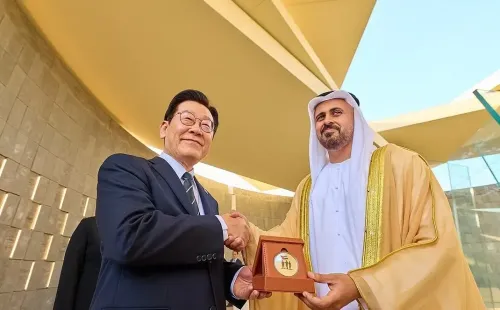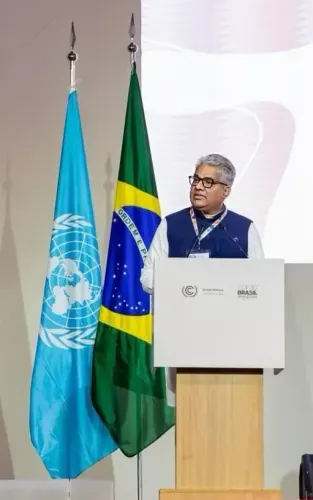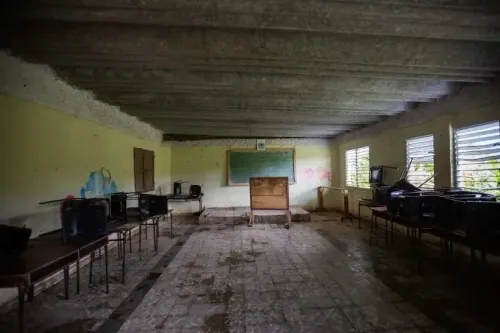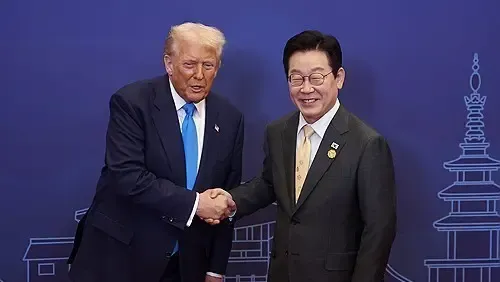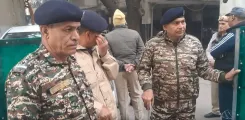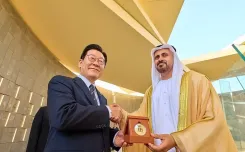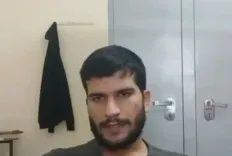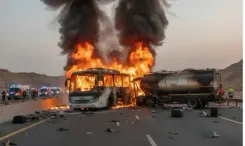Did the UNSC Just Endorse Trump's Peace Plan for Gaza?
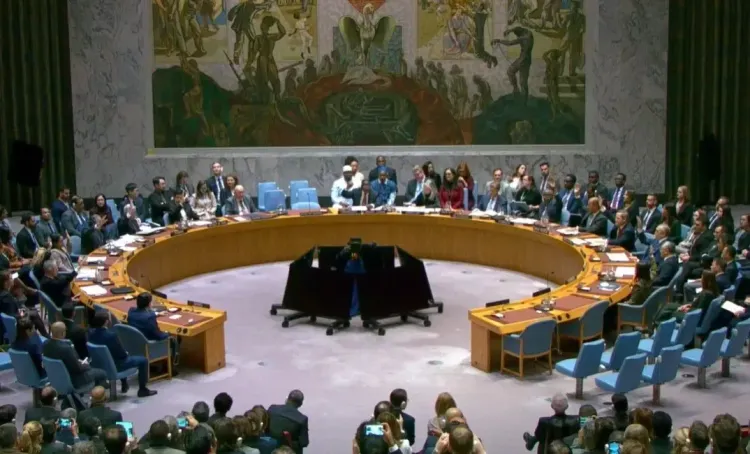
Synopsis
Key Takeaways
- The UNSC resolution endorses Trump's peace initiative for Gaza.
- It opens the door for international forces to assist in the region.
- A credible pathway to Palestinian statehood is proposed.
- The resolution emphasizes the need for humanitarian aid.
- International financial institutions are encouraged to support Gaza's rebuilding.
United Nations, Nov 18 (NationPress) – The Security Council made a significant move by passing a groundbreaking resolution that supports US President Donald Trump’s peace initiative for Gaza, paving the way for the establishment of an international force in the war-torn region.
This resolution, adopted on Monday, marks a diplomatic achievement for Trump, as it acknowledges the Board of Peace (BoP), which he leads, serving as the transitional authority for Gaza as it recovers from two years of devastation.
Trump, who has been critical of the UN, shared on Truth Social, “This will be remembered as one of the most significant endorsements in the history of the United Nations, paving the way for further peace globally and marking a truly historic moment.”
A noteworthy aspect of the resolution is its commitment to establishing a “credible pathway to Palestinian self-determination and statehood,” an initiative the Trump administration had previously resisted.
The full 20-point Trump plan for Gaza was appended to the resolution, a rare occurrence in the history of the Council.
Despite opposition from veto-holding Russia, which had proposed its own motion, the resolution gained support from various Arab and Muslim nations backing the US initiative.
As a result, Russia refrained from voting, allowing the resolution to pass.
Algeria’s Permanent Representative Amar Bendjama stated that the Palestinian Authority and numerous Muslim and Arab nations were in favor of the US resolution.
However, sustainable peace is contingent upon the establishment of a Palestinian state.
Secretary-General Antonio Guterres welcomed the resolution, stating, “It is crucial to transform this diplomatic momentum into tangible and urgently required actions on the ground.”
The resolution emphasizes the need to enhance humanitarian aid through the UN and other organizations, ensuring they have unhindered access to Gaza.
China also abstained from voting, while the remaining 13 council members supported the resolution, including Algeria, the sole Arab nation in the Council.
With a ceasefire already in effect, the next phase of Trump’s peace plan necessitates the deployment of an International Stabilisation Force (ISF) to disarm Hamas and restore law and order in the region, along with training a Palestinian security force.
Nations like Indonesia, which could provide troops, sought Council approval to lend legitimacy to the mission.
It is essential to note that the ISF will not be a UN peace mission nor report directly to the Council, a point of contention for Beijing and Moscow.
The General Assembly has long advocated for an independent Palestine existing alongside Israel. In September, France, Britain, and several Western nations declared their intent to recognize Palestine, contrasting with the US stance.
The resolution conditions Palestinian statehood on reforms within the Palestinian Authority and progress in reconstructing Gaza, much of which has been obliterated by Israeli airstrikes.
Russia’s Permanent Representative Vassily Nebenzia acknowledged the efforts of the US and other mediators in ceasing the active phase of the Israeli-Palestinian conflict.
He noted that the Palestinian leadership and several Muslim and Arab countries supported the US resolution, leading Moscow to withdraw its own.
He expressed concern that it was “a sorrowful day for the Security Council,” as the resolution appears to enhance US authority.
“Don't say we didn't warn you,” he cautioned.
The resolution also sets a framework for international financial organizations like the World Bank to aid in Gaza's reconstruction efforts.
The approval of the US resolution was the culmination of intensive negotiations with Council members and Arab and Muslim nations, with the inclusion of Palestinian statehood being one of the compromises reached.
On Friday, the US secured endorsements for its resolution from Qatar, Egypt, the United Arab Emirates, the Kingdom of Saudi Arabia, Indonesia, Pakistan, Jordan, and Turkiye in a joint statement aimed at countering Russia’s opposition.
The Gaza conflict escalated on October 7, 2023, when Hamas attacked Israel, resulting in over 1,200 fatalities and 251 hostages.
Israel's retaliatory efforts continued until September 29, when the US pressured both sides into agreeing to a ceasefire.
As part of the ceasefire, Hamas released its remaining hostages, while Israel freed some Palestinian detainees.
The UN reports that 80% of Gaza's infrastructure has been devastated by Israeli bombardments, with the Hamas-controlled health ministry estimating approximately 69,000 Palestinians have died, with nearly half being women and children.

